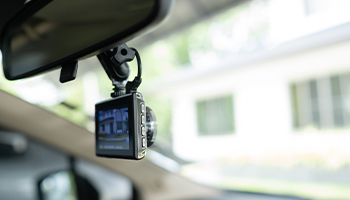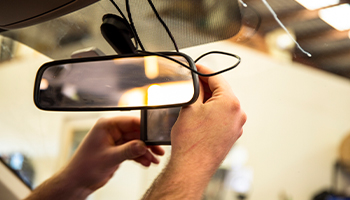In the age where technology is increasingly integrated into your daily life, dash cams have emerged as a popular driver accessory. But can these devices enhance your safety on the road? Explore their potential benefits and limitations.
What Are Dash Cams?
Dash cams — short for dashboard cameras — are small video-recording devices typically mounted on a vehicle’s windshield or dashboard. They continuously record the view through the windshield, capturing everything on the road ahead. Some advanced models include rear-facing cameras that can record the vehicle’s interior.
The Rise of Dash Cam Usage
The popularity of dash cams has surged in recent years, with more drivers recognizing their potential benefits. According to a report by Grand View Research, the global dash cam market size was valued at $4.03 billion in 2023 and is expected to grow at a compound annual rate of 9.6% from 2024 to 2030. This trend suggests more drivers consider dash cams a valuable addition to their vehicles.
How Dash Cams Can Contribute to Road Safety
So, how do dash cams help keep you safer on the road? Here are the four key ways dash cams enhance your security.
Evidence in Accident Investigations

One primary way dash cams can enhance road safety is by providing clear evidence in the event of an accident. A study published in Forensic Science, Medicine and Pathology found that video evidence from dash cams can significantly improve accident reconstruction accuracy and reduce liability disputes.
When a driver is involved in a collision, having video footage can help:
- Clarify who was at fault.
- Support their version of events.
- Expedite insurance claims.
- Protect against fraudulent claims.
Encouraging Better Driving Behavior
The mere presence of a dash cam in a vehicle can be a constant reminder to practice safe driving habits. Knowing one’s actions are being recorded may subconsciously encourage drivers to:
- Obey traffic laws more strictly.
- Maintain a safe following distance.
- Avoid aggressive driving behaviors.
A 2017 study in the Journal of Safety Research found that using in-vehicle monitoring systems — including dash cams — was associated with reducing risky behaviors among commercial drivers.
Documenting Road Rage Incidents

Unfortunately, road rage incidents are all too common.
A dash cam can provide valuable evidence if a driver becomes the target of aggressive behavior from another motorist. This documentation can be crucial when reporting incidents to law enforcement or defending against false accusations.
Capturing Unexpected Events
Dash cams can record unexpected events on the road drivers might otherwise miss or be unable to prove, such as:
- Debris falling from other vehicles.
- Near-miss incidents.
- Wildlife crossing the road.
- Extreme weather conditions.
This footage can be valuable for raising awareness about road hazards and potentially contributing to broader road safety initiatives. It’s also great footage if you’re taking a road trip to places you’ve never been before, making a dash cam as crucial as an extra can of gas, a spare tire, a jack and other essentials.
Limitations and Considerations
While dash cams offer numerous benefits, it’s essential to consider their limitations.
Privacy Concerns
Using dash cams raises privacy concerns, particularly when recording other individuals without their consent. Laws regarding dash cam usage and placement vary by jurisdiction, so drivers must familiarize themselves with local regulations.
Distraction Potential

Although dash cams are designed to operate automatically, some drivers — especially newer ones or those new to technology — may be tempted to interact with the device while driving. Like phones, loud music and chatty passengers, giving in to this temptation can lead to distraction, potentially negating the safety benefits. It’s essential to set up the dash cam before starting a journey and avoid adjusting it while in motion.
False Sense of Security
While dash cams can provide valuable evidence, they shouldn’t be relied upon as a substitute for safe driving practices. Some drivers might develop a false sense of security, believing having a dash cam will protect them from all potential issues on the road.
Choosing the Right Dash Cam
If you decide to invest in a dash cam, you should consider the following.
Video Quality
Look for a dash cam with at least 1080p resolution to ensure clear, detailed footage. Some high-end models offer 4k resolution, which can be particularly useful for capturing license plate numbers and other small details.
Installation and Placement
Proper installation and placement of the dash cam are crucial for optimal performance and legal compliance. Mount the camera securely without obstructing your view of the road. Putting it on a spot free of dust, moisture and extreme temperatures ensures it will stay in place no matter the amount of bumps in the street.
Field of View
A wider field of view allows the camera to capture more of the road. Most dash cams offer a field of view between 130? and 180?. However, extremely wide angles can sometimes distort the image at the edges.
Night Vision Capabilities
Good night vision performance is crucial since many accidents occur in low-light conditions. Look for dash cams with high-quality sensors and wide apertures for better low-light recording.
GPS Integration
Some dash cams include GPS functionality to record a vehicle’s speed and location. This information and dash cam video can be valuable in accident reconstructions but may also be used against you if you were speeding during the incident.
Dash Cams Can Contribute to Road Safety
While dash cams are not the ultimate solution for driving safety, they can certainly contribute to a safer experience when used responsibly. However, it’s crucial to remember that the primary factors in road safety remain your skills, attention and adherence to traffic laws. A dash cam is a supportive tool rather than a replacement for safe driving practices.
Jack Shaw, the senior Cars editor of Modded, is an accomplished automotive writer with a flair for adventure and a passion for vehicular innovation. Having written for notable sites such as the National Motorists Association, Ford Muscle, Offroad Xtreme, and more, his articles are a testament to his knowledge and love for the automotive industry.
The information in this article is obtained from various sources and offered for educational purposes only. Furthermore, it should not replace the advice of a qualified professional. The definitions, terms, and coverage in a given policy may be different than those suggested here. No warranty or appropriateness for a specific purpose is expressed or implied. The opinions expressed by guest bloggers are theirs alone and do not reflect the opinions of AIS Management LLC, any subsidiary or affiliate of the same, or any employee thereof. We are not responsible for the accuracy of any of the information supplied by the guest bloggers.


